Does anyone really want to rough it while RV camping? You chose an RV over a tent because you want some comforts of home.
When you’ve lost power on a 90-degree summer day, and your RV is 110 degrees inside because your air conditioner won’t run, you will kick yourself for not planning for such a scenario.
The answer is a generator with enough power to keep your air conditioner running and appliances on.
Follow along as I discuss how to determine the right size and type of RV generator needed for popular motorhomes and trailers, maintenance tips, and a review of some top generator models.
The Best Generators for Every Size RV
- 7500 Running Watts and 9500 Peak Watts; Remote Start With...
- Features Two GFCI (Ground Fault Circuit Interrupter) 5-20R 120V...
- Plug-and-Play: Comes with a Remote Start Key Fob, 12V Battery...
- Powered by a 420cc Westinghouse 4-Stroke OHV Engine Featuring a...
- All Westinghouse Portable Generators are Functionally Tested in...
If you want the best generator for you large motorcoach or fifth-wheel, this Westinghouse model with remote electric start provides 7500 rated watts with 9500 peak watts for high-draw starts from air conditioners and other appliances.
This generator is available in gas or gas/propane powered models, is transfer switch ready, and CARB (a California standard for air quality) Compliant. It comes with these features:
- Electric and Recoil Start
- Key fob for the remote start
- 6.6 gallon fuel tank with up to 16 hours runtime
- One L14-30R 120/240V twist-lock receptacle
- 20R 120V receptacles
- Two GFCI receptacles
The Westinghouse WGen7500 Portable Generator weighs in at 192 pounds – not too bad for such a powerful unit that will run every appliance you have.
- 4, 000 peak watts/ 3, 500 running watts
- Capable of up to 15 hours of extended operation at half load on...
- Convenient wireless remote start allows you to operate the unit...
- Quiet operation (63 db) make it virtually silent from just 10...
- Compact design with extendable Handle and Never-Flat wheels for...
The best generator for larger fifth wheels and trailers is this gas-powered Pulsar model offering 3500 running watts and 4000 peak watts for an extra boost when firing up high-draw appliances.
This Pulsar generator is CARB compliant, has a remote start that works up to 80 feet away, and can run in parallel with another generator. It also features:
- 3.4 gallons of fuel with up to 15 hours runtime
- Quiet operation at just 63 decibels
- Compact design
- Portable with never-flat wheels
- Two 120 volt 20 amp receptacles
- One 120 volt 30 amp RV outlet
- One 12 volt 8 amp outlet
- Integrated USB outlets
The Pulsar 4,000W portable generator weighs in at 92.6 pounds and is very quiet, which allows you to run other outdoor appliances without bothering your camping neighbors.
This Champion RV ready gas-powered generator with wireless remote start is best for mid-size motorhomes and trailers. With 3100 watts of power, it should cover the needs for most RVs in this size range.
This model features a low oil shut-off, a durable cast iron sleeve, and is air-cooled. It also features:
- 1.6 Gallon fuel tank with up to 8 hours runtime
- Quiet operation at 58 decibels
- 4-stroke, single cylinder
- Key fob for remote start
- One 120 volt 30 amp RV plug
- Two 120 volt 20 amp standard receptacles
- One 12 volt DC outlet with dual USB adapter
The Champion 3100-Watt RV Ready generator weighs in at 58 pounds, giving you the power you need when there is no pedestal to connect to, yet lightweight and quiet enough to move to any area you need a power source.
This Generac model is the best generator for smaller or older motorhomes, trailers, teardrops, and truck campers. With 2000 running watts and 2200 peak watts to start up the air conditioner, this gas-powered, compact unit is also easy to store.
The Generac 7117 model is parallel ready, CARB-compliant, and provides stable power that is ideal for sensitive electronics. It also features:
- 1.2-gallon fuel tank allows up to 10.75 hours runtime on 25 percent load
- Integrated off/run/choke knob
- Low-oil and overload alerts
- Quiet
- Two 120 volt receptacles
- One 12 volt receptacle
The Generac 7117 GP2200i is super-light for a generator at just 46.6 pounds. For all this power in such a light, compact unit, you can’t go wrong with this model for use in small RVs where space is at a premium.
How to Determine the Right Size Generator for an RV
The first thing you must look for is a generator specifically built for powering RV appliances.
RVs run on a mix of 12 volts, 110-volt, and even 240-volt power, so RV-ready generators have been made to accommodate this need.
Built-in RV generators are very common in larger motorhomes and trailers, whereas smaller RVs have a more portable version if they have one at all.
Next, I break down the factors determining the size and type of generator you need: watts, use, weight, and fuel type.
Watts
Under-sizing your generator leaves you without the use of all your appliances. Over-sizing a generator is like throwing money away since you’re paying for power you’ll never utilize.
All appliances post wattage requirements. Locate these labels and jot down each appliance’s wattage for everything in your RV.
The air conditioner usually takes the most power to run and needs a higher wattage requirement to start it.
Using a handy RV generator sizing calculator can help you determine how many watts you’ll need.
Once you’re sure you have every appliance written down, make a new list of the ones you normally run simultaneously.
For example, you have your TV, air conditioner, and refrigerator running pretty much all the time. But then you decide to pop dinner into the microwave.
That added wattage pull from the microwave will trip your generator if it’s not big enough, so take a few moments and consider what you want to run off the generator if shore power goes out.
Add up the wattage requirements for these items. This total number is the minimum wattage needed for your RV generator.
Use
I have a small motorhome I converted to run solely on electric. I know from experience that I need to run my fridge, microwave, and water heater when a power outage occurs.
I can do without air conditioning, so I purchased a smaller, lightweight generator that could still provide extra power for my electric heater if it’s cold.
All campers have needs they find essential, so determining the actual use of your generator plays a role in your purchase decision.
Some want their 45-foot motorhome to run as it would while plugged into a 50-amp pedestal. Some only want the fridge to run. Purchasing a generator specific to your needs is most cost-effective.
Weight
Experienced campers know they can’t overtax their tow-vehicle or trailer axles by hauling extra weight. RVers always choose lightweight versions of everyday essentials to keep RV weight down.
Generators can weigh from around fifty to several hundred pounds. If you choose a high-wattage generator, you’ll have to consider your RV’s weight restrictions and may have to forgo bringing other items like a grill or extra water.
Fuel Type
It’s best to select a generator that runs on a fuel compatible with your RV. RV generators come in different models designed to run on these types of fuel:
- Gas
- Diesel
- Propane
Gasoline
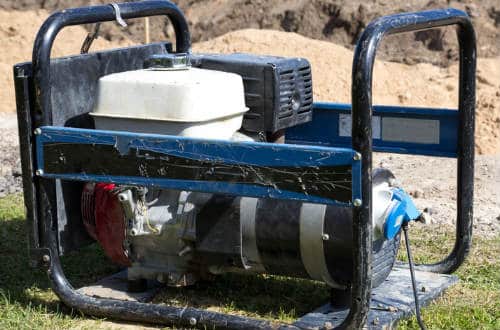
Many people choose gasoline-powered generators because the fuel is cheaper and readily available. The downsides are the high flammability, and gas burns quicker than diesel.
There are EPA regulations for gas RV generators that require EVAP, which captures the gas fumes inside gas generator tanks and returns it so it can burn.
Most newer motorhomes comply with these regulations, but most travel trailers don’t. If you choose a gas generator, tow-behinds require the installation of an EVAP system, so you’ll be compliant and avoid fines.
Diesel
If you have a diesel RV or tow with a diesel truck, it’s best to have a diesel generator.
It’s not only easier to utilize one fuel source, but diesel burns cleaner than gas, it’s non-explosive, and it delivers more power than propane.
Propane
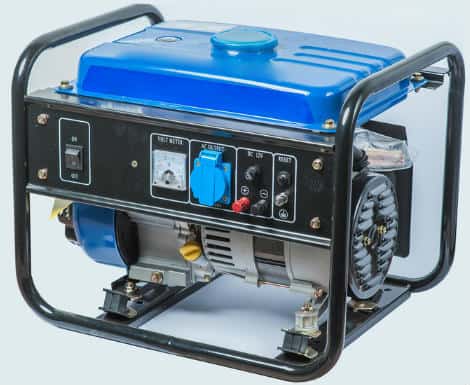
Liquid propane has a longer shelf-life and emits cleaner emissions which are better for the environment.
Propane may be limiting since you can only run your generator as long as your propane tank holds out. There’s also 10 percent less power output from propane than generators that run on diesel or gas.
Generator Maintenance
Once you’ve invested in a generator, you need a regular maintenance schedule. It’s all too common for newbies to neglect their generator, then find out it won’t work when they need it most.
A new generator needs a break-in period before it will run at an optimal level. Use this method for initial break-in, then for monthly check-ups after that, whether you are actively camping or you have your RV stored.
- Start generator and let run five minutes
- Turn on A/C and let run 45 minutes
- Turn off A/C, let generator run five more minutes to cool down
- Turn off generator
Watch the following video for more tips on RV generator maintenance to keep it working properly.
Common Uses for Generators While Camping
#1 – Boondocking (Free Camping in the Boondocks AKA the Middle of Nowhere)
When shore power is nowhere in sight, you’ll rely on your RV’s generator to run the appliances. This is true for off-grid camping spots, as well as some state and national parks, or parking at the beach.
Some generators have DC outlets for a quick charge of your car or boat or have 240-volt outlets to charge batteries, so you’re not left stranded.
If you have the fuel to keep your generator running, you can enjoy all your RV’s amenities like blending up some happy hour cocktails during your trip.
#2 – Campgrounds
When you pull into a campground and pay for your spot, you assume when you plug into the pedestal you will have a care-free experience.
Unfortunately, power outages can occur from storms, or an over-taxed power grid if the park is full.
There’s also the most infamous; power pedestals being run over by hurried campers. This leads to a shutdown of the main panel which could power down your section of the park until they fix it.
You’ll make use of your generator more often than you think, even at the fanciest of campgrounds.
Generators for Motorhomes
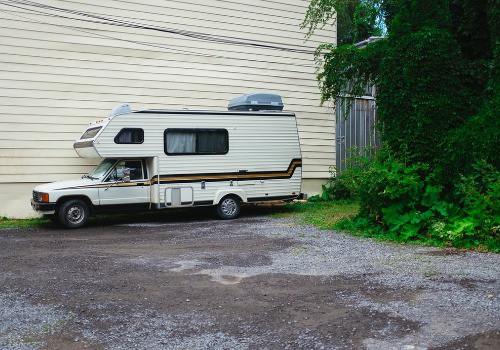
Many current motorhomes have generators included. The larger the RV, the more expensive the generator needed to fulfill its power needs.
If your motorhome didn’t come with a generator, or you need a replacement, it helps to have a general idea of what size and type of generator you’ll need. Measure the space where you intend to store it, so you get one that fits.
Below are a couple of common motorhomes and the recommended size of generator they need.
#1 – Winnebago
Winnebago is an iconic name in the camping industry. Although they do sell travel trailers and large coaches, they are known most for their Class C motorhomes.
Ranging in size from 20-foot models up to 36-foot designs, these tend to feature similar appliances and wattage load requirements.
Unless your model has two separate air conditioners, a 3500-4000 watt generator size should work to cover your power needs.
#2 – Newmar
Newmar motorcoaches are very popular and feature all the bells and whistles you could ever want while camping.
Popular models range in the 40 to 45 feet for length, and most utilize two air conditioners.
For this amount of wattage needs, you will need to purchase a generator at the minimum of 5500 watts.
You must understand that you will need an RV generator of this size to come with a 50-amp plug installed, like versions from Cummins Onan.
If you don’t already, always carry a 15/30 amp, and 30/50 amp adapters at all times since you never know what kind of power plug you will find at campground pedestals, or what you will need to plug in your generator.
Generators for Travel Trailers and Fifth Wheels
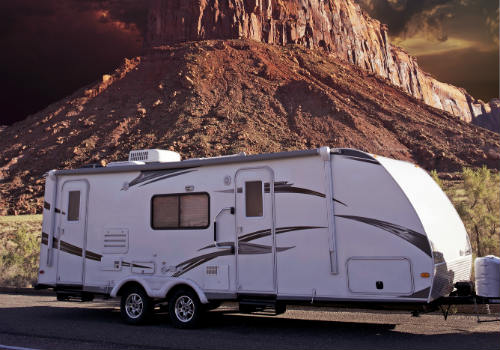
Most fifth-wheels have a large storage compartment to fit a generator. Travel trailers don’t have this extra space, so you’ll have to find a generator that will fit in the space you’ve allotted for one.
Next are some popular brands of trailers and the generators that suit them best.
#1 – Airstream
Airstreams are the most recognizable of all campers. Old or new, they have quite a following of loyal owners.
Generally mid-size for a travel trailer, Airstream energy demands needed for a generator will fall into the 2500-3500 watt range.
#2 – Grand Design
Grand Design RVs are extremely popular, due to good layouts and quality construction.
Models of travel trailers range from 25 to 38 feet long, and their fifth-wheels from 30 to 41 feet long.
For any style of Grand Design RV that has one air conditioner, a 3500-4000 watt generator should be sufficient. If you upgrade to models with two air conditioners, you will have to boost that number to 5000 watts or higher.
Conclusion
A quality generator with the right wattage will prepare you for any camping emergency or deliver the extra power you need to entertain your camping friends. Our suggestion is to invest in a good one — a dependable one that you can count on if something goes awry.
Product data was last updated on 2024-04-25 at 09:05.



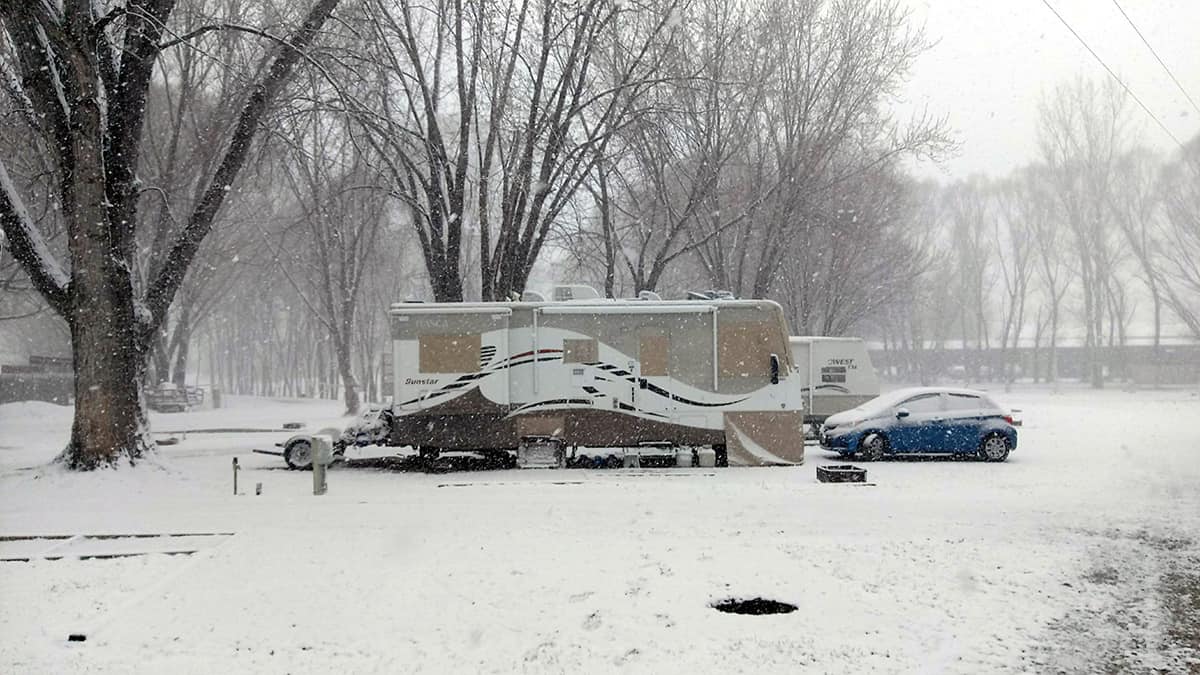
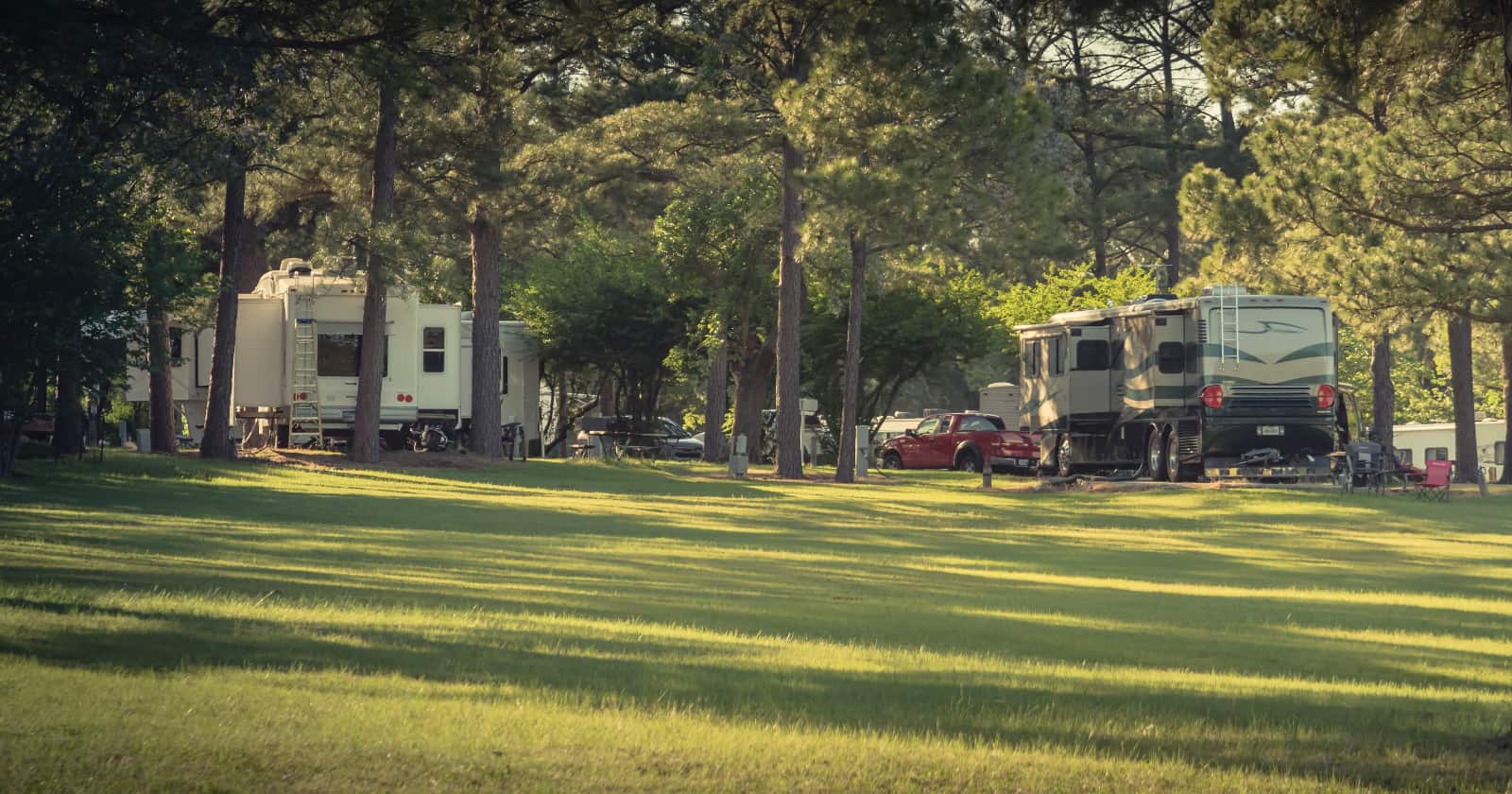


Very cool list.